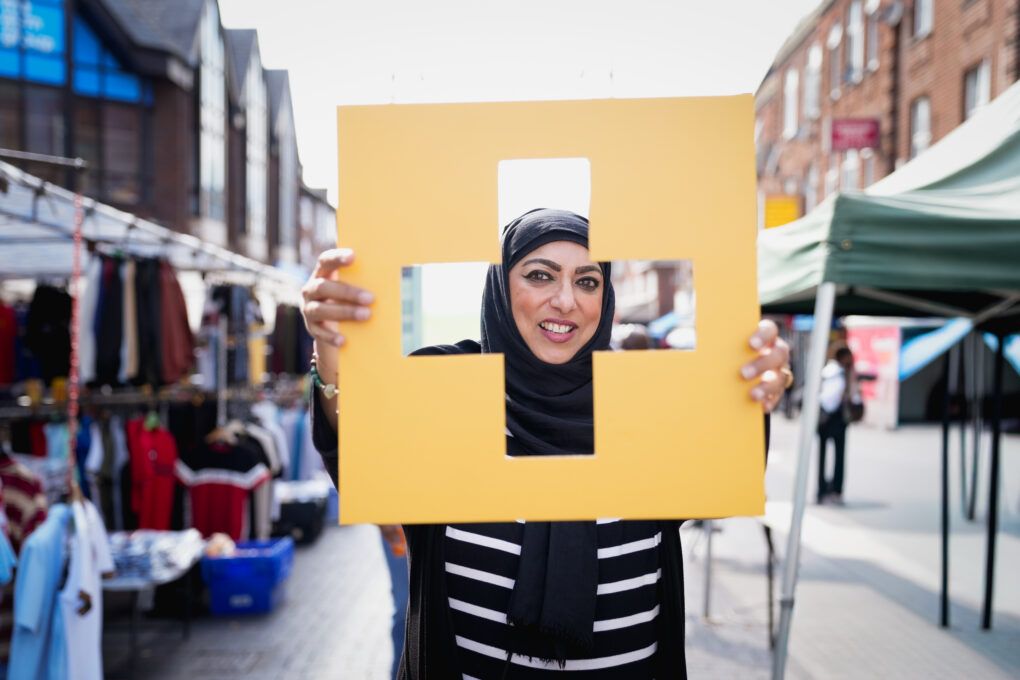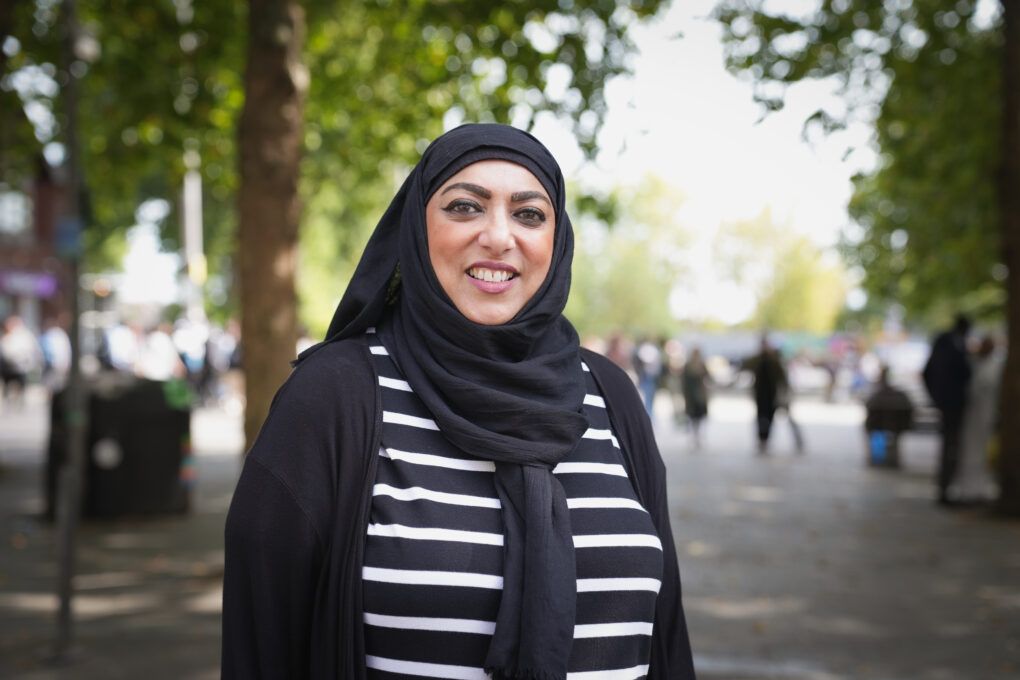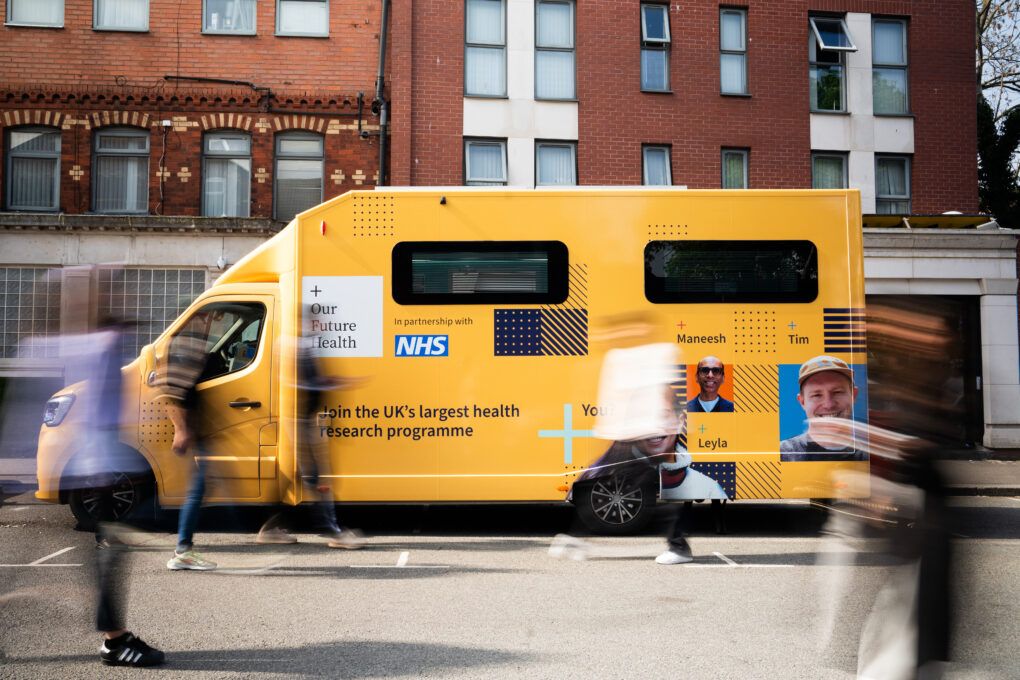‘I’m proud to be supporting health research that could transform lives in my community’

Northeast Londoner Shabana Dhedhi has always been a strong advocate of representation in her community.
She worked in the voluntary sector for many years, and is also a member of the Genes and Health Advisory Board for genetic health studies at Queen Mary University of London.
Today, she is a councillor in the London borough of Waltham Forest, a role that puts her in direct contact with communities that have been historically under-represented in health research.
“The difference in health spans across London is stark,” says Shabana. “A report found that women living in Richmond can look forward to 72 years of healthy life, compared with just 54 years for women living in Tower Hamlets. If you look just at Waltham Forest, the borough where I work, life expectancy varies by 7.6 years for women and 6.2 years for men between wards. It’s clear that some communities are faring better than others.
“There’s also research suggesting Pakistani women wait longer than average for healthcare and treatment, which I learned about recently from GP and broadcaster Dr Nighat Arif.
“These discrepancies need addressing. We need to make health better for people from all communities.”
Shabana says that the desire for equality motivated her to volunteer for Our Future Health. Our programme’s goal is to revolutionise the way we fight disease and improve health span, as well as lifespan.
We’re committed to building a resource that reflects the UK population, that can help researchers identify differences in how diseases begin and progress in people from different backgrounds.
“The genetic research element of the programme really appealed to me,” says Shabana. “We need to understand more about the prevalence of different health conditions in different communities. For example, things like type 2 diabetes and cardiovascular diseases are far more common in people of Pakistani heritage like me.
“My family and I have experienced genetic health conditions and diseases. Because of this, I truly believe that increasing preventative healthcare is the way to go.”
‘I never thought I’d develop diabetes’

If you’re South Asian, like Shabana, your risk of developing type 2 diabetes increases from the age of 25. That’s much earlier than people from other ethnic backgrounds. For example, White Europeans are at an increased risk from the age of 40.
“My mum did mention to me when I was younger that my grandmother had type 2 diabetes, but I just thought, ‘that will never happen to me’,” recalls Shabana.
However, Shabana received her type 2 diabetes diagnosis in 2023, at the age of 50.
“I’m a people person and love being out and about and chatting. So, when I was stuck indoors during the pandemic, I struggled and just started eating too much of the wrong foods.
“I wasn’t doing my daily walks either, because I was terrified about going out. South Asians were experiencing much poorer outcomes from Covid-19 than other ethnicities, and I didn’t want that to happen to me or my family.
“I’m now on medication for my diabetes and cholesterol levels, and I do intermittent fasting, Zumba, and Pilates. My latest tests were looking good. I just wish I’d taken action sooner.”
Genetic health conditions
Shabana’s family have also experienced more than their fair share of health issues.
“My husband is a long-term sufferer of ulcerative colitis, which is a genetic condition that may have been passed down through his family,” she says. “He also had bowel cancer about 10 years ago, and underwent chemotherapy to treat it. You’re more likely to develop bowel cancer if you have ulcerative colitis because of constant inflammation in the bowel and colon.
“Today, my husband is alive and we’re so grateful for the care he’s had. But I sometimes wonder whether we could have prevented his bowel cancer if we’d been able to manage his colitis better.”
Shabana also shares that her nephew has thalassaemia major, an inherited blood disorder where the body doesn’t produce enough haemoglobin. It can lead to severe anaemia and requires lifelong blood transfusions.
Thalassemia mainly affects people of South Asian, Mediterranean, Southeast Asian and Middle Eastern origin, and is passed on to someone when they inherit a thalassemia trait from both parents.
“My sister and her husband both carry the thalassaemia gene, but they didn’t know about it until my nephew got his diagnosis,” says Shabana.
Although thalassaemia can often be managed with treatment, it can have a significant impact on a person’s life. “My nephew is a healthy person in many ways, because we get so much wonderful support from the NHS to help him manage his condition. But he’s had some health complications, and he’ll always need monitoring.
“He’s 19 years old now and just started university. I hope health researchers can use Our Future Health’s resource to improve the outlook for people like him.”
The gift of health research
“It’s so important that Our Future Health is building a diverse data set,” says Shabana. “We do see higher levels of genetic conditions and diseases in certain communities, so it makes sense that we need to be a part of the research that goes into them.
“If you want to improve the health of your community and future generations, please consider taking part in Our Future Health. I feel proud to be supporting research that might one day transform, or even save, lives.
“What better gift can you give than that?”

About Volunteer Voices
Volunteer Voices tell the stories of people who take part in our research programme. Often, they have experienced the devastating effects of a disease.
Joining Our Future Health does not help our volunteers in their battle with disease. They take part because they want to help improve healthcare for others in the future.

Let’s prevent disease together
By volunteering for Our Future Health, you can help health researchers discover new ways to prevent, detect and treat common conditions such as diabetes, cancer, heart disease, stroke and Alzheimer’s.